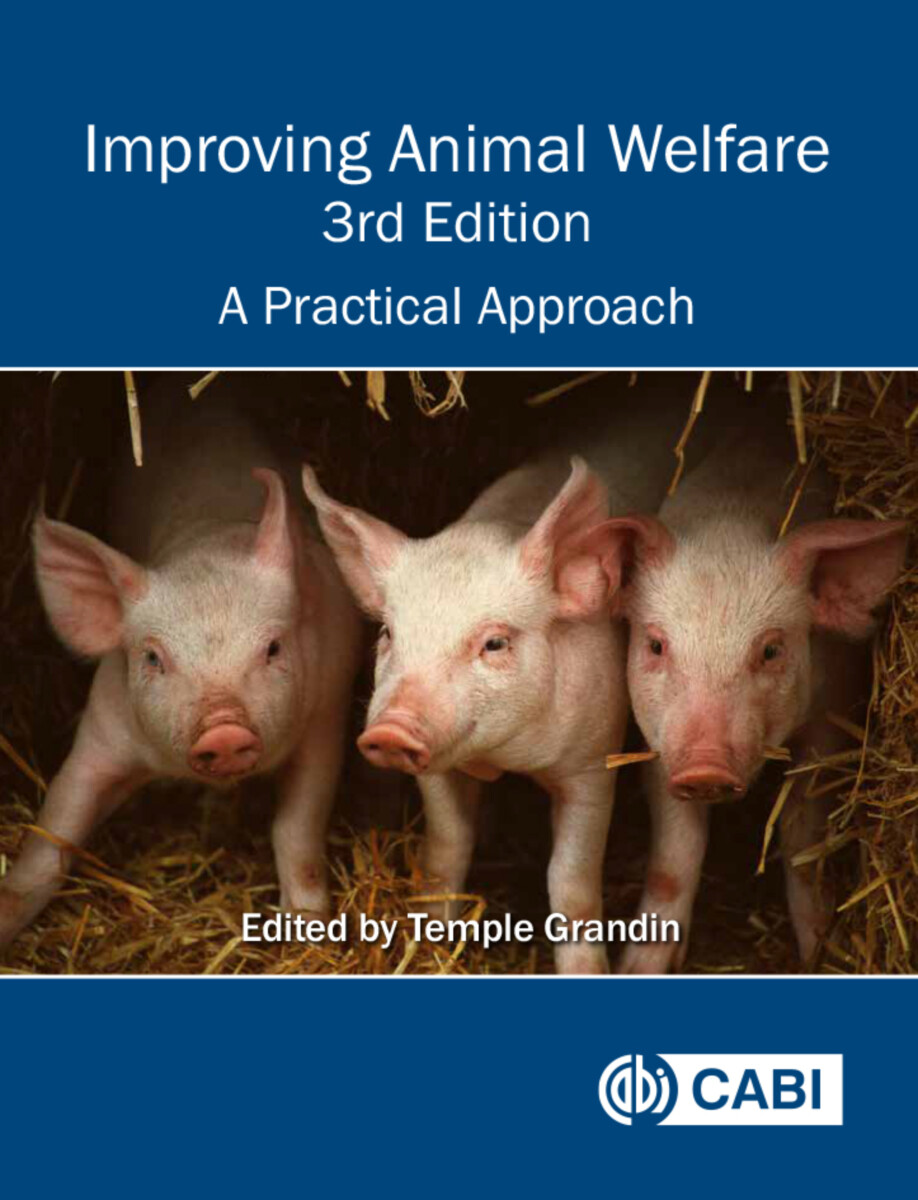Improving Animal Welfare Edition 3
A Practical Approach
- Publisher
CABI - Published
23rd December 2020 - ISBN 9781789245226
- Language English
- Pages 472 pp.
- Size 7" x 9"
- Request Exam Copy
- Publisher
CABI - Published
23rd December 2020 - ISBN 9781789245219
- Language English
- Pages 472 pp.
- Size 7" x 9"
- Request Exam Copy
Praise for previous editions:
"(There) sometimes appear publications which are worthy of specific attention... (they) stimulate, instruct and present new concepts. Among such books belongs the reviewed book... we can only hope that this successful work gets to the hands of those in the field." Agricultura Tropica et Subtropica
"This book should be a must read for agricultural and veterinary students and a reference book for those policy making to guide us in the simple things that can make such a big difference to the quality of life of our production animals." Veterinary Record
Completely revised, updated, and with four new chapters including sustainability, new technologies, precision agriculture, and the future of animal welfare, the third edition of this highly successful textbook.
- Emphasizes throughout the importance of measuring conditions that compromise welfare, such as lameness, heat stress, body condition, and bruises during transport
- Includes four new chapters covering contemporary key topics in animal welfare
- Combines scientific information with practical recommendations for use in commercial operations
- Reviews practical information on livestock handling, euthanasia, slaughter, pain relief, and assessments of abnormal behavior
1: An Introduction to Implementing an Effective Animal Welfare Program
2: The Importance of Measurement to Improve the Welfare of Livestock, Poultry and Fish
3: Why is Agricultural Animal Welfare Important? The Social and Ethical Context
4: Implementing Effective Standards and Animal Based Measurements for Assessing Animal Welfare on Farms and Slaughter Plants
5: How to Improve Livestock Handling and Reduce Stress
6: Painful Husbandry Procedures in Livestock and Poultry
7: The Importance of Good Stockmanship and its Benefits to Animals
8: Animal Well-being and Behavioral Needs on the Farm
9: Improving Livestock, Poultry and Fish Welfare in Slaughter Plants with Auditing Programs
10: Recommended On-Farm Euthanasia Practices
11: Welfare During Transport of Livestock and Poultry
12: Animal Well-Being on Organic Farms
13: A Practical Approach on Sustainability for Supply Chain Managers of Meat, Dairy, and Other Animal Proteins
14: The Effect of Economic Factors on the Welfare of Livestock and Poultry
15: Improving Animal Care and Welfare: Practical Approach to Achieving Change
16: Successful Technology Transfer of Behavioral and Animal Welfare Research to the Farm and Slaughter Plant
17: Future of Animal Welfare: Technological Innovations for Individualized Animal Care
18: Technology Designed to Enhance Poultry Welfare
19: Precision Livestock Farming and Technology in Swine Welfare
20: Practical Methods for Improving the Welfare of Horses, Donkeys, Mules, and Other Working Draft Animals in Developing Areas
Temple Grandin
Temple Grandin is Professor of Animal Science at Colorado State University. Dr. Grandin's work includes design of animal handling systems, research on livestock behavior, and auditing animal welfare. She has visited 26 countries and has served on the OIE animal welfare ad hoc committee for slaughter. Her previous livestock books are: Livestock Handling and Transport, Genetics and the Behavior of Domestic Animals and Humane Livestock Handling. Her popular press books on animal behavior have been both U.S. and international bestsellers. Throughout her career, Dr. Grandin has worked to combine scientific research results with practical application in the field. In North America, half the cattle are handled in equipment she designed for meat plants. She has received awards for her work on animal welfare from both the livestock industry and animal welfare NGOs. She has awards from The Royal Society for the Prevention of Cruelty to Animals, The American Meat Institute, American Society for Animal Science and the Humane Society of the U.S.


